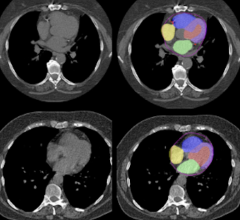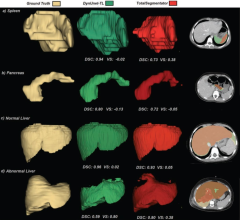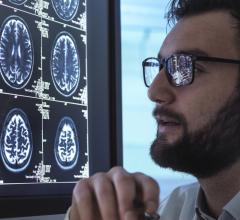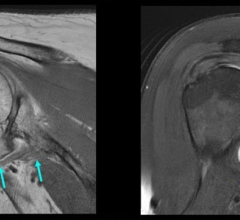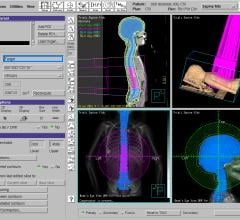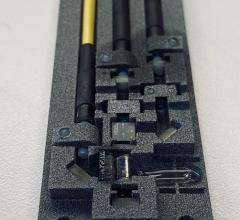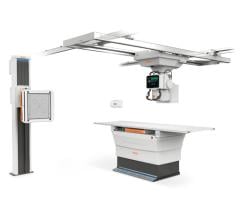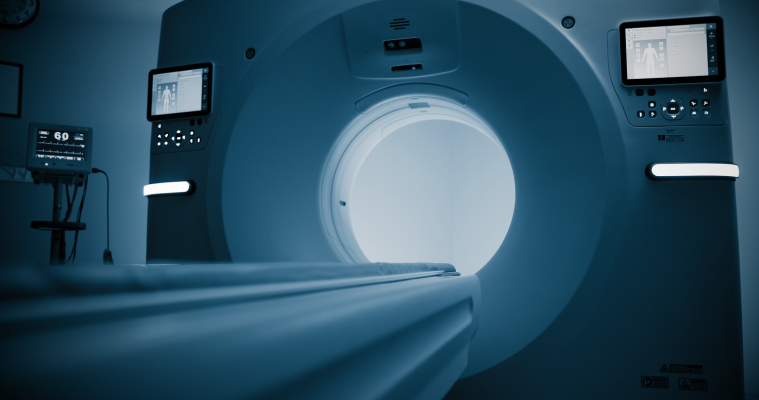
September 27, 2021 — GE Healthcare unveiled Revolution Ascend with Effortless Workflow, offering clinicians a collection of artificial intelligence technologies that automate and simplify time-consuming tasks to increase operational efficiency and free up time for clinicians to deliver more personalized care to more patients. The computed tomography (CT) system’s new 75 cm wide-gantry, 40 mm detector coverage, and lower table position are designed to accommodate high body mass index (BMI) patients as well as trauma cases that would otherwise be too delicate to maneuver in a smaller size gantry.
For nearly 50 years, CT has proven to be a vital imaging tool used by clinicians to detect cancer, stroke, heart conditions, and other diseases. However, as CT procedure volume grows – reaching an all-time high ahead of the COVID-19 pandemic – so too does the need to optimize CT protocols and expand patient positioning options to help expedite exams and accommodate more patients.
“The most time-consuming part of the CT experience isn’t the scan itself, but the steps that fall outside the scan,” explained industry expert Timothy P. Szczykutowicz, Ph.D., director of clinical operations and the CT Protocol Project at the University of Wisconsin School of Medicine and Public Health as well as author of The CT Handbook: Optimizing Protocols for Today's Feature-Rich Scanners. “Within a typical 10–30-minute CT exam, the scan itself only takes a few minutes and the remainder of the time is dedicated to patient prep – including positioning the patient and identifying the correct protocols and settings, plus image reconstruction and report time. Historically, these have been manual processes, putting them at risk of human error; however, AI offers new opportunities to automate workflows and expedite exams with the same or better results.”
Revolution Ascend helps address these challenges with GE Healthcare’s Effortless Workflow, a new suite of AI solutions that personalize scans accurately and automatically for each patient while requiring significantly less effort from the CT technologist. It starts with the technologist using the system’s attached bar code reader to scan the patient’s chart or tag and personalize each exam: automatically pulling up the patient’s information and suggesting relevant protocols. With one click, the CT technologist can then initiate Auto Positioning, which uses real-time depth-sensing technology to generate a 3D model of the patient’s body and a deep learning algorithm to determine the correct table elevation and cradle movements to align the center of the scan range with the isocenter of the bore. Once the patient is ready to be scanned, intelligent tools embedded in the new Clarity Operator Environment provide optimal scan range settings, dose, and image quality for each individual, helping to deliver greater efficiency and more personalized medicine across clinical care areas.
Altogether, Effortless Workflow’s AI-based features streamline the entire CT process by automatically:
- Positioning patients with 94% auto centering accuracy within +/- 2 cm;
- Suggesting protocols with 90% accuracy;
- Automating and expediting workflows with a 66% reduction in clicks;
- Saving 56% of time for scan settings and 21% for the entire exam;
- Reducing up to 91% image noise at the same dose; and
- Improving spatial resolution up to 2x at the same image quality.
“Having Revolution Ascend is like having an extra set of hands – which are much needed in today’s healthcare environment,” said Gladys Farias, Imaging Services Manager at Baptist Health in Miami, Florida – one of the first installation sites for Revolution Ascend. “Not only do the system’s intelligent solutions help us expedite exams, but they also enable us to deliver a more comfortable and personalized experience for each patient. Technologists love it for its simplicity. Clinicians love it for its results. And patients love it for its fast exams and comfort.”
Revolution Ascend also uses a dedicated deep neural network to generate TrueFidelity CT Images to help improve reading confidence in a wide range of clinical applications – such as head, whole body, and cardiovascular, for patients of all ages. Compared to even the most advanced iterative reconstruction technology, TrueFidelity CT Images can elevate every image to a powerful first impression with impressive image quality performance, and preferred image sharpnessv and noise textureiv – all without compromising the low dose levels to which clinicians have grown accustomed.
Furthermore, Revolution Ascend’s 75 cm wide-gantry design with a lower table position increases the patient area inside the bore by 22% to provide patients additional space for a more comfortable CT scanning experience. This new wider bore design represents the widest gantry aperture at the shortest geometry design in its class.
“We designed Revolution Ascend with accessibility in mind,” explained Jean-Luc Procaccini, President and CEO, Molecular Imaging & Computed Tomography, GE Healthcare. “Not only does the system’s hardware help accommodate more patients with various physical limitations, but its cutting-edge AI also helps expedite exams so healthcare system schedules can accommodate additional patient scans. Altogether, Revolution Ascend with Effortless Workflow helps empower clinicians to reach the right diagnosis as efficiently and precisely as possible for more patients.”
Revolution Ascend’s Effortless Workflow, as well as additional advanced applications, are offered as an upgrade to existing GE Healthcare CT systems or by acquiring Smart Subscription – an Edison service – which provides access to the latest CT device software across a hospital system’s entire CT fleet. This common access to GE Healthcare’s digital ecosystem of applications helps increase staff efficiency, reduces training, and improves satisfaction by ensuring there is one set of capabilities for healthcare workers to learn, operate and read.
For more information: gehealthcare.com

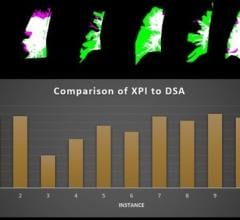
 May 17, 2024
May 17, 2024 
